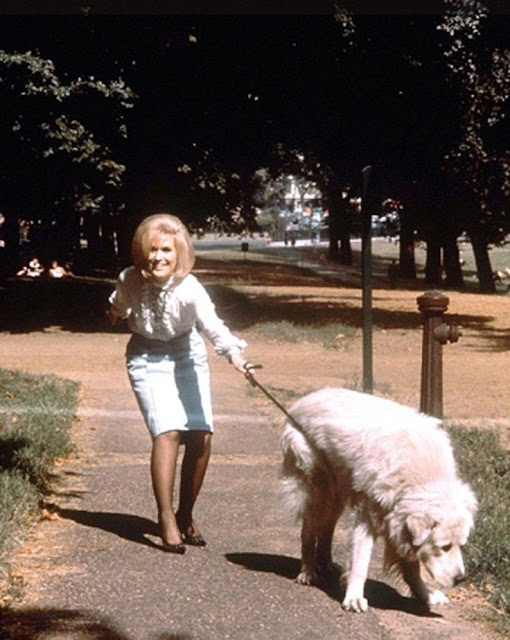I’ve been walking in Dublin. I was there for the 7thSir Richard Francis Burton Conference, where my pal Anthony Miller and I were presenting a paper (possibly just having an on stage conversation) under the title “Burton as Psychogeographer and Walker.” We looked like this:
 |
| PHOTO BY CAROLINE GANNON |
I don’t think there was anything controversial about this paper. Most travelers are psychogeographers to the extent that they “study (or at least experience) the effects of the geographical environment, on the emotions and behavior of individuals.” And one way or another they often end up doing a fair amount of walking, when the car breaks down, when the bus drops you off in the wrong place, or in Burton’s case when the camel dies under you. This is Burton walking in his own garden in Trieste - I guess he had to hold still for the camera.
I’d thought there must be some connection to be made between Burton and Joyce, and no doubt there is, but as part of my research I tracked down an entry in Harold Nicolson’s diary dated 30thJuly 1931. Nicolson was lunching with a group of literati including his publisher from Putnam, in order to meet James Joyce. Joyce was “not a very convenient guest at luncheon” and they struggled for conversation.
Knowing that Joyce had lived in Trieste where Burton had once been consul, one of the guests, Desmond McCarthy, asked Joyce, “Are you interested in Burton?”
“Not in the very least,” Joyce replied.
Still, the conference gave me, and everyone else, plenty of time for walking around the city, and it seems hard to go anywhere without getting the feeling that you’re walking in Joyce’s footsteps, which is no bad thing.
A walker doesn’t necessarily need a project but, I found myself noticing and photographing various “establishments,” whether in business or abandoned or somewhere in between, and in some cases I managed to photograph other walkers, walking past these places. This kind of thing:
Of course we psychogeographers do love a good map and it was easy to find free maps in Dublin, offered by various tourist attractions but this one, not free, and very hard to slip into your pocket, is one of the best 3-D maps I’ve even seen, metal and stone, about two feet across, depicting (unless I'm mistaken) the outline of Dublin Castle. I mean you probably wouldn’t use it to get anywhere but as a topographical object it’s hard to beat.
Oh and here’s a thing you might like. As discussed earlier elsewhere, if you go to the Burton archive at Orleans House in Richmond you’ll see a plaster caster of one of Burton’s hands and one of his feet.
And if you were drifting around the Dublin streets up by the Glasnevin Cemetery, you might well see this cast of a foot in the window of a shop called Crafty Studio.
Coincidence? Synchronicity? The universe sending me a message? Nah, there’s no such thing.

















